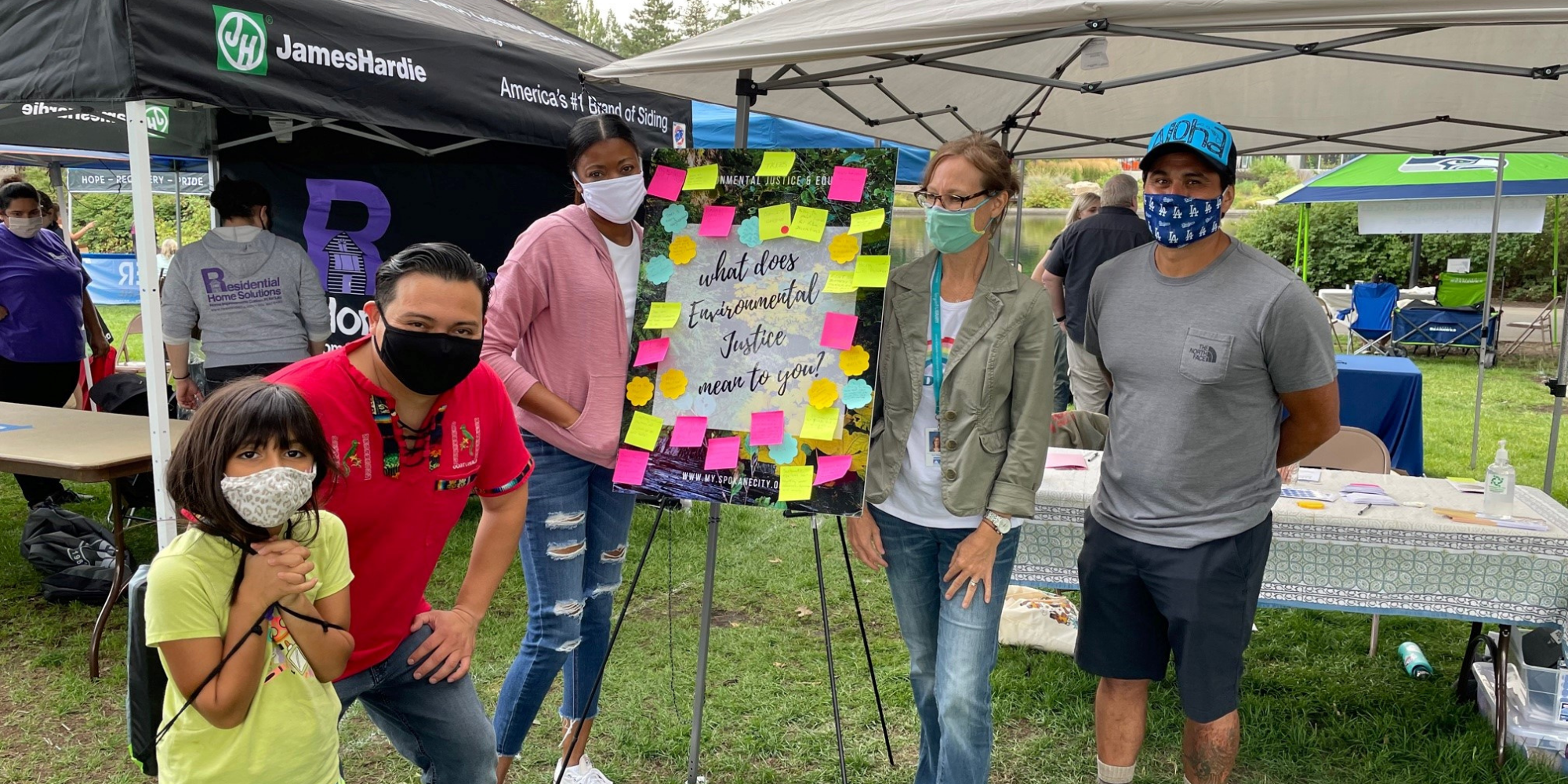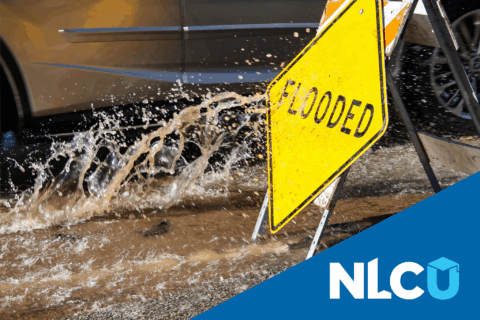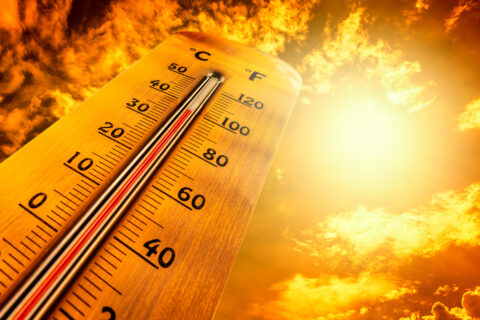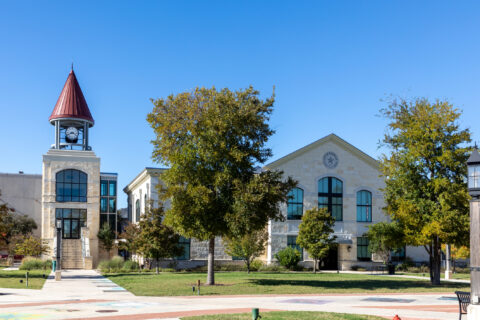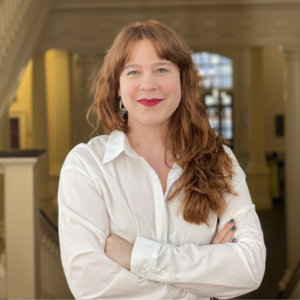The city of Spokane, WA is seeing the impacts of climate change firsthand. The far eastern city in Washington state withstands record-breaking air quality risks from toxic wildfire smoke and heatwaves. The Pacific Northwest’s extreme heat dome event in June 2021 caused at least 20 deaths in Spokane County. The Washington State Department of Health’s state Health Tracker indicates that many of Spokane’s neighborhoods rank in the worst category for “Environmental Health Disparities,” which will likely only increase with more frequent and severe heat, drought, and wildfire events from climate change. To help mitigate these challenges, in 2020, Spokane announced its commitment to reduce greenhouse gas emissions incrementally to achieve net carbon neutrality by 2050.
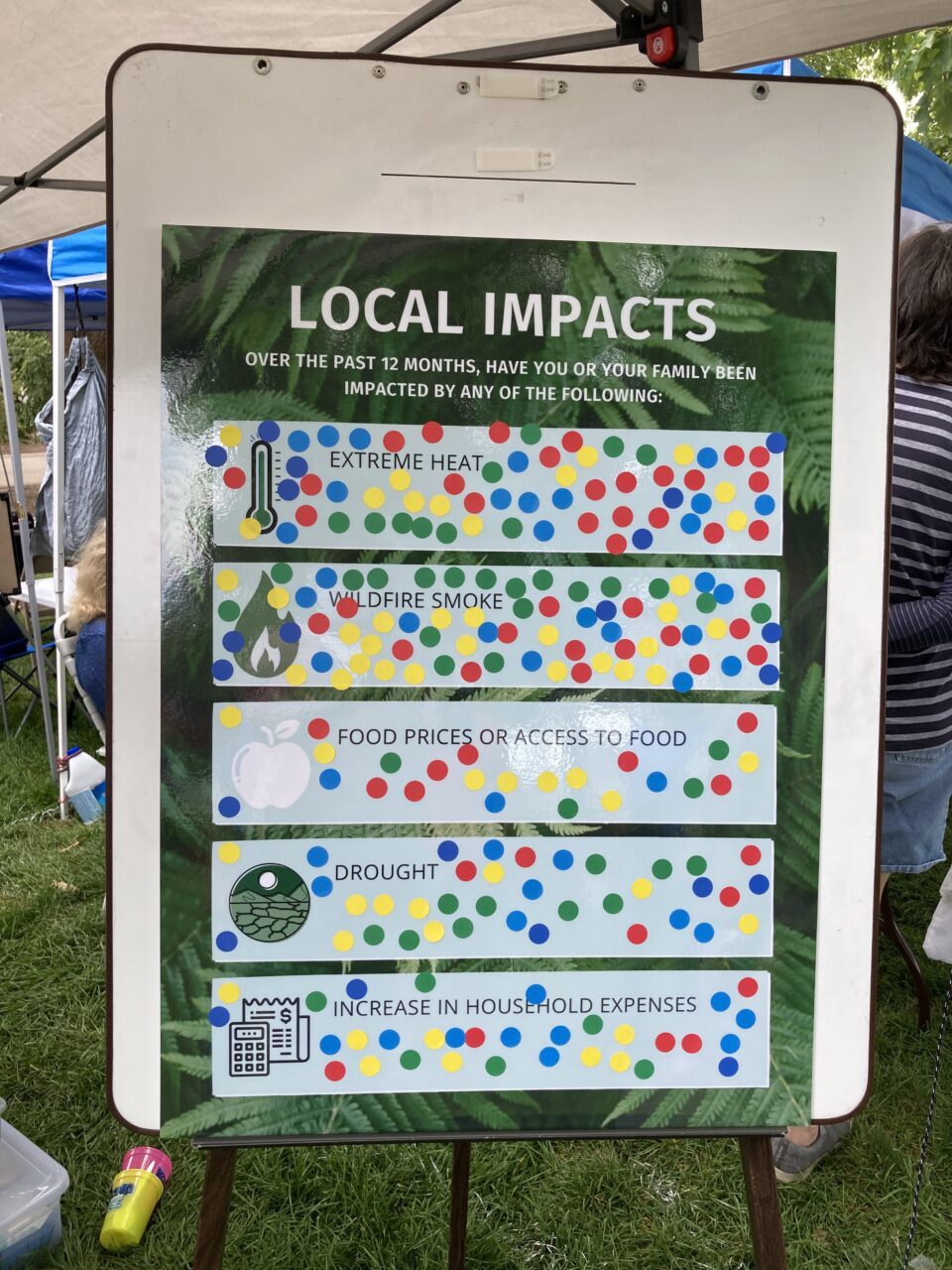
Data Informs Environmental Justice Learning & Opportunities
Using funding from NLC’s Leadership and Community Resilience (LCR) grant program, the Spokane City Council’s Sustainability Action Subcommittee formed an Environmental Justice and Equity Workgroup (EJEW). The EJEW allows the city to engage with at-risk communities to better assess their needs, and partner with residents and community-based organizations (CBOs) to come up with policy solutions based on their on-the-ground expertise. Using the Health Tracker tool, the team first identified communities most at-risk from climate impacts by cross-referencing environmental disparities with social and health disparities to identify the highest-risk census tracks or neighborhoods. For example, the Health Tracker indicates that the Nevada Heights neighborhood in northeast Spokane scores high in environmental disparities, diesel pollution and health disparities while also hosting one of the highest rates of poverty in the city. The neighborhoods identified in the Health Tracker then provided the EJEW with vital knowledge on where to begin targeted community engagement and identify resident allies and CBOs.
The EJEW has made it possible for the city to engage more than 15 CBOs and 30 community leaders in 2021. EJEW participated in the annual Unity in the Community event to discuss five key issues with Spokane residents: heat, smoke, drought, food security and household expenses. The workgroup engaged more than 200 community members and surveyed 150 people on environmental justice issues in Spokane. Engaging directly with community members from diverse backgrounds provided valuable, firsthand experiential data to support Census data available in the Health Tracker. Identifying challenges with direct input from community members will provide the city with a framework to prioritize emergency response and resilience actions as the it continues to implement its Sustainability Action Plan.
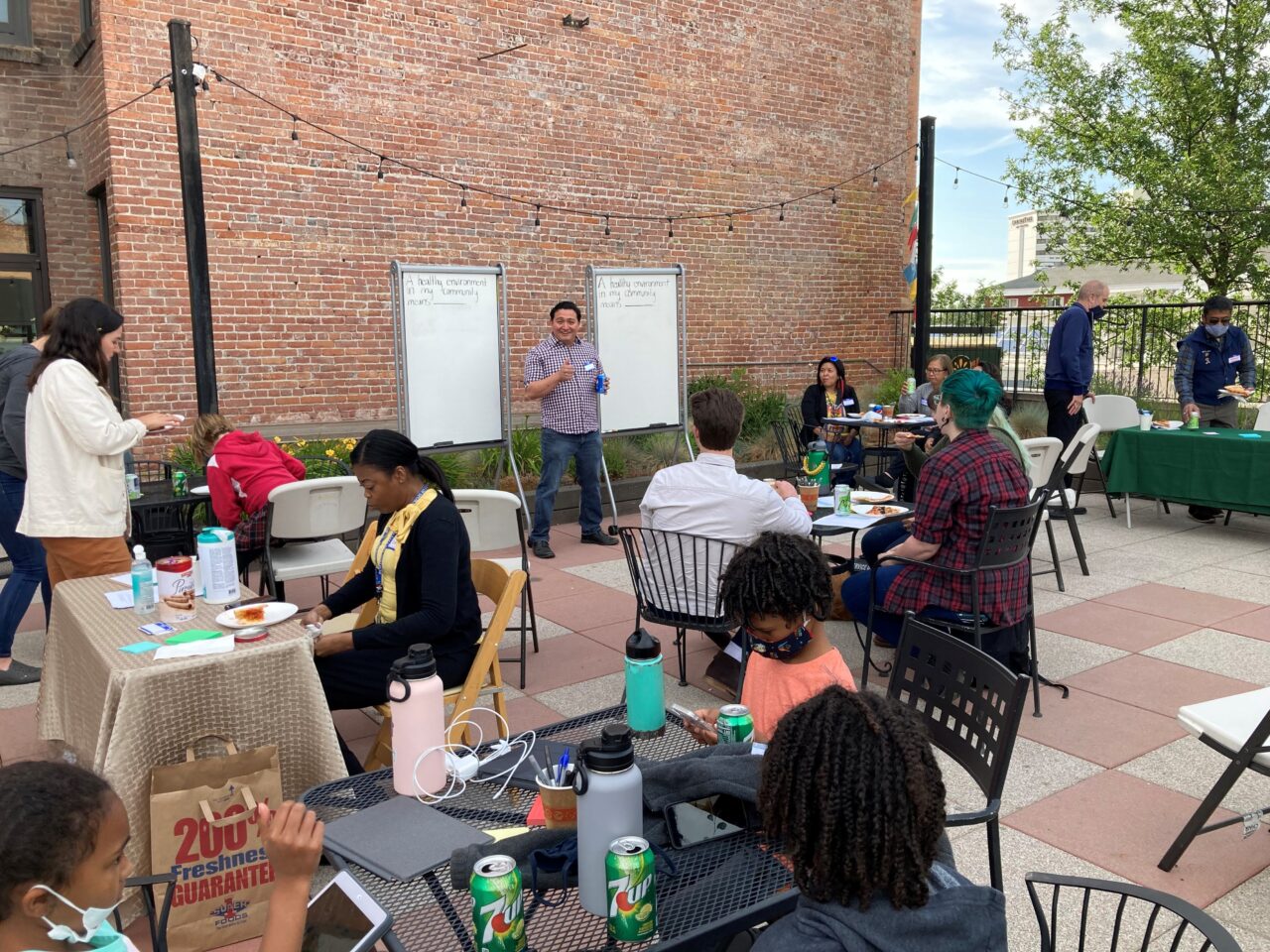
Additionally, the EJEW seeks to create opportunities to connect residents with nature, particularly residents who often lack access to these spaces, including low-income families and Black, Indigenous and other People of Color (BIPOC). The city partnered with Inland Northwest Land Conservancy (INLC) and other local stakeholders to host a nature walk in a newly-protected 111-acre parkland that is part of Spokane’s Riverside State Park.
Local Policy Barriers to Equity
The city sought to empower residents and amplify its engagement work to build upon the foundation of these relationships. Through their focus on equitable practices, city staff recognizes that compensating residents is an indicator of respect and consideration for their expertise and time investing in their neighborhood. However, traditional municipal funding policies made it difficult for city staff to directly allocate funds in this way. Although the EJEW sought to use LCR funds for engagement events, similar spending policies prevented the city from compensating participants more than $25 per event regardless of funding source.
Missing sustainable funding sources to compensate low-income, BIPOC and underserved community members indicates that long-standing municipal funding policies may not align with the equitable values that cities aim to incorporate to achieve better outcomes.
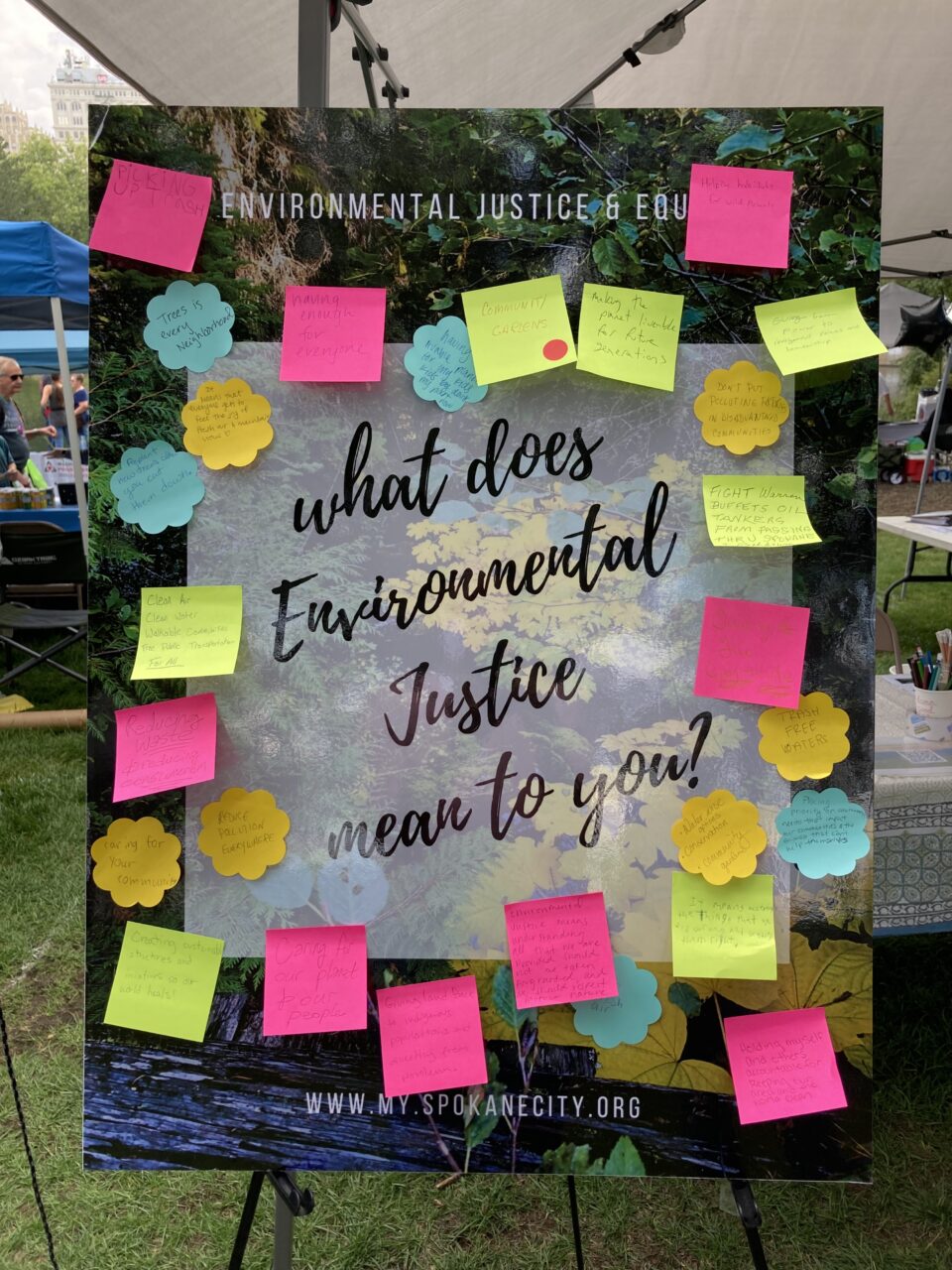
Recommendations for Pursuing Environmental Justice
Spokane is one of many local governments that will need to strategize about how growing environmental concerns are affecting its residents’ lives now and over the next 10-30 years. Cities across the country will face increasing and more severe climate events that lead to greater community costs, ranging from increased food insecurity, drought conditions, higher risk of dehydration and hospitalization from extreme heat, flooding that will impact local housing, poor air quality as a result of wildfire smoke and more. The following recommendations highlight Spokane’s lessons learned that may help other local leaders better their approach to environmental justice:
- Cities must make the necessary funding policy adjustments to make partnerships feasible. Examples include creating a formal stipend program and ensuring received grants can be used to complete essential steps of the work.
- There is no substitute for direct engagement. Conditions can vary from neighborhood to neighborhood, considering the different demographics and resources (or lack thereof) of each place.
- Collaborating with CBOs and nonprofit agencies has many benefits. Collaboration provides more flexibility, increases staff capacity and establishes credibility and trust from residents.
- Funding environmental justice and equity programs is essential to building awareness and resilience within under-resourced communities. This is especially important to understand the solutions that communities need.
- This work takes time. As some local governments begin their first attempts at on-the-ground, direct engagement with their residents, significant neighborhood issues may be revealed that take priority over what was originally planned. Alleviating these problems first may be necessary to build community trust and eventually approach the initial issue.
Learn more about the Leadership in Community Resilience program.
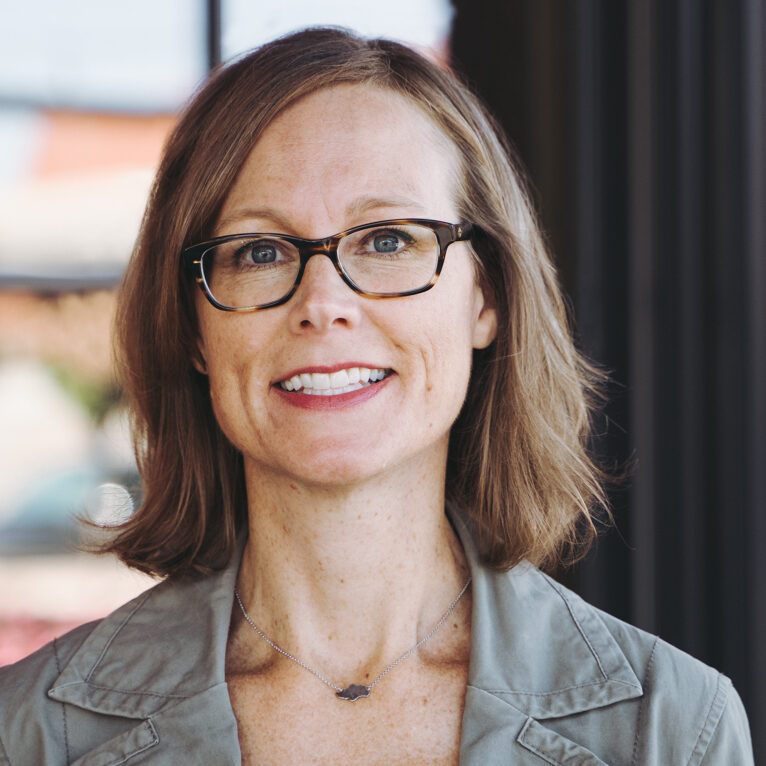
About the Author:
Kara Odegard works for Spokane City Council managing policy and public engagement related to climate and the environment.
